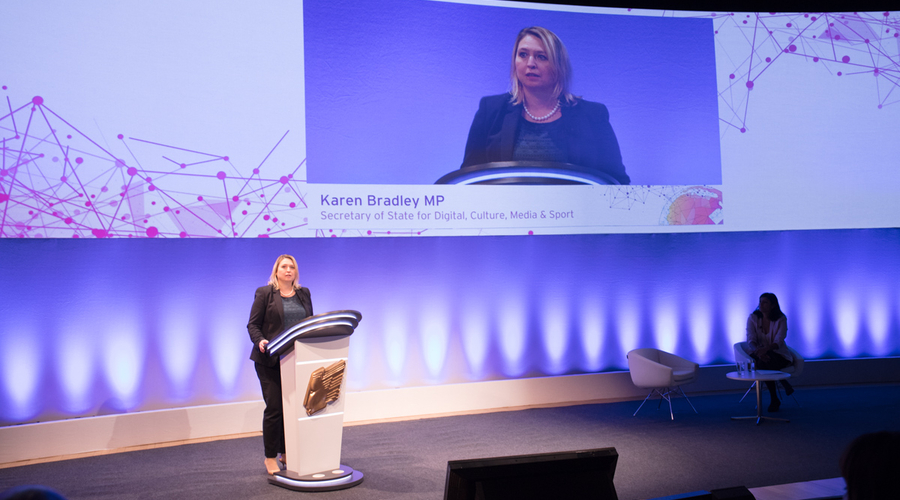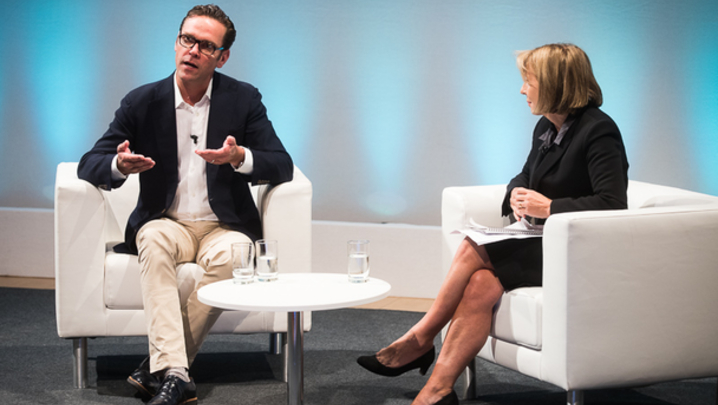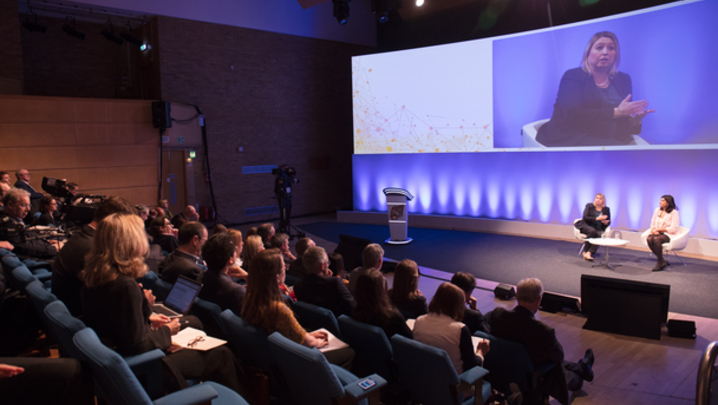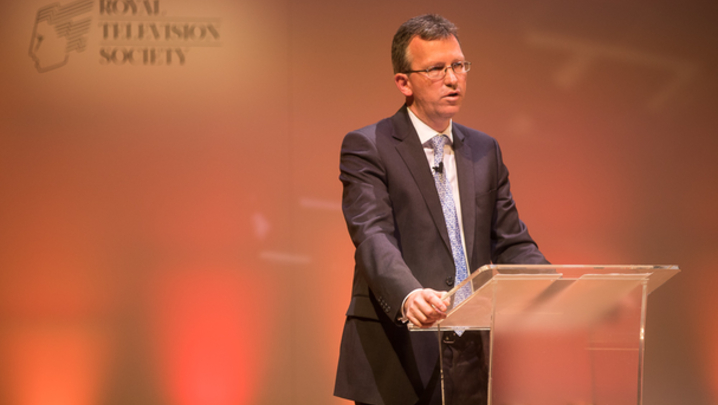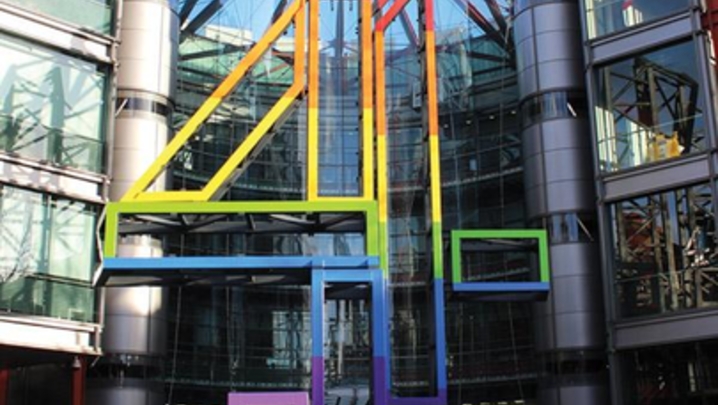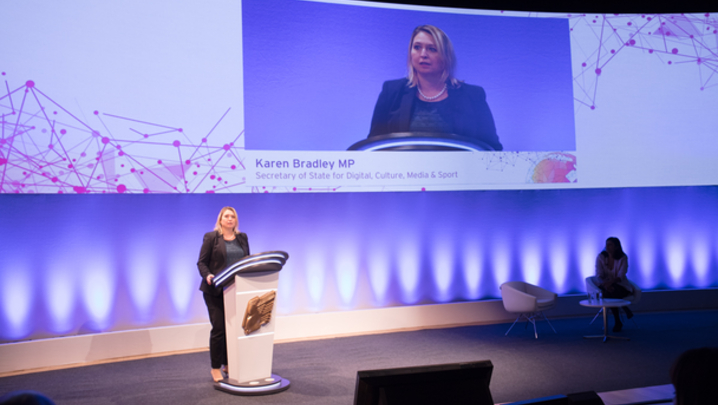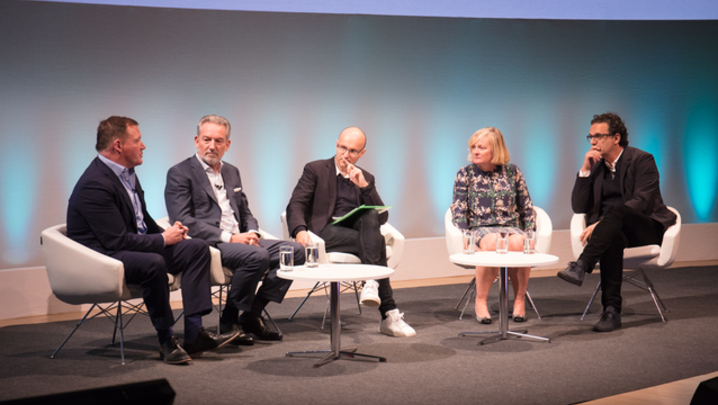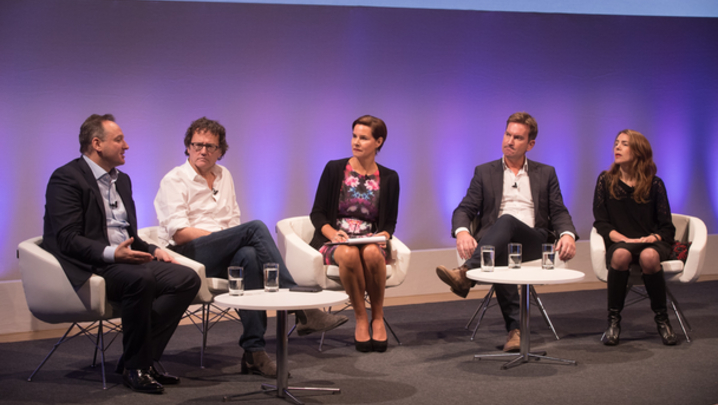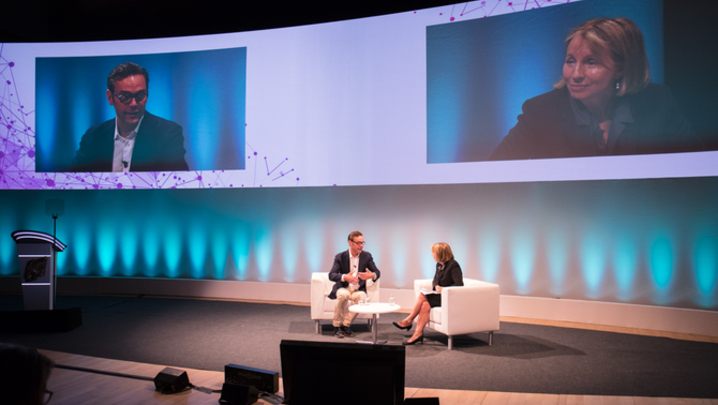Speech by The Right Honourable Karen Bradley MP, Secretary of State for Digital, Culture, to the RTS Cambridge Convention 2017 on Thursday 14 September 2017.
(Check against delivery)
It really is an honour to address the RTS Conference. This is one of the top fixtures in a Culture Secretary’s diary - and I would have been very disappointed to miss out.
I’ve said it before and I’ll say it again: I have the best job in government.
How could it be otherwise, when I get to engage with such a rich variety of sectors?
They are a huge and growing part of our economy; they are energetic and exciting; they are educational and enjoyable; they are major sources of jobs; and they export on a massive scale and showcase the UK to the rest of the world.
And television does all of these things single-handedly.
As for almost everyone else, it has been a huge part of my life. I grew up an avid Coronation Street viewer, have spent decades laughing along with Dad’s Army and Only Fools and Horses - my kids love them - and now I’ll often be found catching up with programmes on iPlayer or watching Bosch on Amazon Prime. Or, my guilty pleasure - back to back Come Dine With Me.
I want to pay tribute to three giants of British television who have recently died.
The newsreader Mike Neville was a hugely popular figure for more than forty years - described as “the face and voice of the North East”. I was in Newcastle the day after he died and it was clear from the number of people who spoke to me about their sadness what a big role he had played in people’s lives.
Sir Bruce Forsyth likewise had a glittering career, the like of which I wonder if we will see again.
And Steve Hewlett did sterling work in both broadcasting and print journalism, becoming one of the most articulate and respected voices in the industry. It was very apt that earlier this year the RTS and The Media Society should announce the creation of a scholarship for young journalists in his name.
It is not my job to decide what should be on TV. Happily, we don’t live in a country like that.
My role is to support and to challenge you, and to be your champion abroad.
The best champions are also candid friends. Where I think the industry can and should do more, I will not be afraid to say so. I take a deep interest in the entire industry, of course, but I have a particular responsibility to make sure that public service television is serving the entire public.
It is precisely because British TV is so important and so good – indeed peerless throughout the world – that I want it to reach everyone.
The success of our television industry cannot only be measured by how widely it is watched. We know that we score extremely highly on that metric. This is indeed a world of opportunity for UK television.
Television’s success must also be measured by how well different communities are represented on and off screen, by differences in pay, and by whether the industry is flourishing in every part of our nations and regions.
British television is strong because it is diverse – and will become stronger still the more diverse it becomes – which in turn will allow it to thrive internationally.
TV provides role models and help drive change in society. I think of diverse casting in Balamory, the first lesbian kiss on Brookside, and transgender Haley on Coronation Street.
Television is the window through which much of the world sees the United Kingdom. It is only right, then, that the picture they see is one of a dynamic and diverse country. TV must reflect the real world and the country that we live in.
But be in no doubt that TV production is excessively concentrated in London.
Pact has found that of the £2 billion budget for UK productions in 2016, just 32 per cent was spent outside London, and only 35 per cent of jobs.
In March I announced that the Government wanted Channel 4 to increase its regional impact. Relocation may not mean the whole business, but I am clear that Channel 4 must have a major presence outside London, and potentially increase commissioning. In doing so Channel 4 can play a leading role, as a publicly-owned public service broadcaster, in a system that reflects and provides for the country as a whole.
We ran a public consultation on the best way forward. Today we will publish the results from that consultation, and I can announce that the overwhelming majority of respondents stated that Channel 4’s regional impact would be enhanced if more of its people and activities were located outside London.
One respondent noted that Channel 4 is an important part of a media sector that has a “duty to hold up a mirror to the nation”. I think this is a really nice way to sum up how we feel about Channel 4.
A significant majority further agreed that increasing Channel 4’s commissioning quotas would be an appropriate and effective way to enhance Channel 4’s impact in the nations and regions.
We also commissioned independent economic analysis. This is due to report to us next week, but emerging findings suggest there would be regional economic benefits from relocating Channel 4 and from increasing commissioning.
Channel 4 has often led the way in representing different communities. Its commitment to disability, for example, is superb - its year of disability in 2016 was a tremendous success, and developing The Last Leg into a mainstream success is testament to its efforts.
I know Channel 4 works very hard to give a voice to as wide a range of people as possible.
It is this very sensibility that makes it well placed to relocate outside London - along with its unique status as a public service broadcaster paid for by commercial activity but owned by the taxpayer.
I want to be very clear regarding Channel 4 - it is a great broadcaster with many fantastic programmes. However, as a public asset I expect it to do even more to support the whole country.
Decisions about its programming should not all be made in the bubble of Westminster. And people seeking to work in the media should not feel that they have to move to London.
I will continue to work really closely with Channel 4, and my preference is to agree a way forward in concert with Channel 4.
I am delighted that Alex Mahon has been appointed CEO. She has had a fantastic career in software, TV and retail, along with her commendable work as Appeal Chair of The Scar Free Foundation.
I am conscious that Alex doesn’t formally start until November, but we have already had constructive discussions. We have got to get this right for Channel 4 and the country that owns it.
This is about Channel 4’s long-term future, and it may take some time to resolve. We are not looking at people moving tomorrow, but I do expect change by the end of this Parliament - and I hope to reach an agreement with Channel 4 on the direction forward by the end of the year.
BBC
Another of our great public service broadcasters is the BBC, which has a unique place in our broadcasting ecology.
I’m very proud of what we’ve achieved with the new Charter. It gives the BBC the foundation to thrive in the coming years.
The public deserves to know how the licence fee is being spent. That is why we have required the BBC to improve its transparency and efficiency – establishing the National Audit Office as the BBC’s financial auditor and giving it the power to undertake value-for-money studies on the BBC’s commercial subsidiaries.
The new BBC Board brings effective, modern governance and will deliver further transparency and efficiency, including on pay.
We have required the BBC to disclose the pay of talent, with a threshold of £150,000 - in line with the BBC’s executives and management and the civil service.
As you have noticed, the publication of BBC talent pay caused something of a stir, especially in relation to the gender pay gap. It is not for the Government to dictate how much individual stars are paid, but transparency will help ensure pay levels are reasonable and fair.
This is not a case of singling out the BBC. The Government has introduced mandatory gender pay gap reporting for all organisations with more than 250 employees, starting next year.
Greater transparency will encourage employers to scrutinise their own practices and take steps to close pay gaps. Indeed the BBC Director-General has made clear his commitment to close the BBC’s gender pay gap by 2020 and I fully support and welcome the action he is taking.
There has been some debate about how far the BBC should be expected to go on pay transparency. The Chairman of the Culture Select Committee is eager to extend pay data as far as independent production companies, which the industry - including the BBC - currently feels would be excessive. However, while I recognise the BBC’s concerns, I must say that I sympathise with the principle that the BBC should be at the forefront of pay transparency, and we expect them to lead the way.
Diversity
The BBC - and indeed UK television - also needs to look like the country it represents, both on and off screen.
I make no apology for writing to Ofcom to outline the Government’s position that the BBC should be leading the way with both on- and off-screen diversity - and that this is up to the BBC Board and Ofcom as the regulator to hold them to account.
Project Diamond, run by the Creative Diversity Network, is very much a beginning, not the end of the story. Nevertheless, the first stage considered 81,000 pieces of TV content. It found that while BAME people are statistically well represented on-screen, off-screen is another matter.
And people with disabilities are very underrepresented both on-screen and off-screen. We have made some progress in terms of viewers with disabilities. The Government has worked to extend audio description services and subtitling to Video on Demand through the Digital Economy Act. But people with disabilities should not be limited to experiencing television as consumers. It should be a career option as well.
I fully respect the fact that it is for the broadcasters, the BBC board, and Ofcom to implement the changes we all want to see, but it is also right that I should lay down a challenge for them to do so. It will not be straightforward - but just because something is hard does not mean that we shouldn’t try.
One of the many reasons that this matters is that media is the prism through which the rest of the world sees us.
Reaching out to whole world
Diversity at home – and drawing on everybody’s talents - is essential if we are to make the most of global opportunities.
As the UK exits the European Union, strengthening existing relationships with other countries – and forging new ones – becomes all the more important, as you have just been discussing in your previous session.
Television is already a leader in this area. British TV – such as Sherlock, Downton Abbey, and The Octonauts - is phenomenally popular in China. The Octonauts has clocked up 4.1 billion views since its launch on three of China’s most popular online TV channels.
Securing the right deal for broadcasters is an essential part of our Brexit negotiations. Both DCMS and DexEU are working closely with broadcasters on a wide range of issues. I have heard how important Country of Origin rules and European Works quotas are for the sector, for example.
In terms of talent, the whole Government appreciates that creative industries operate in a global marketplace. We will always want immigration, including from EU countries, and especially high-skilled immigration. In June, the government made its ‘fair and serious’ offer around the rights of EU citizens. The second phase of our immigration proposals will be a temporary implementation period starting on exit day, before new long-term migration arrangements for EU citizens are introduced. This will ensure there is no cliff-edge on the UK’s departure for employers or individuals.
I can’t tell you exactly what the future holds, but I will continue to engage and discuss these critical issues with you, so that together we can work towards the best possible outcome for the sector, one which maintains the UK’s preeminent position in the world when it comes to TV production and broadcasting.
What I am certain about is that TV will help lead the charge as we shape a new relationship with the rest of the world.
So to conclude….
Diversity is not merely a buzzword. It encompasses gender, age, ethnicity, disability, and a range of other characteristics. Above all, though, it is a vital phenomenon - the absence of which means that we cannot collectively thrive as we should do.
The aggregate effect of making things fairer and more accessible for individuals can be enormous – injecting even more talent into our TV industry and showcasing our country in all its diverse glory to the world.
I am here to encourage and occasionally cajole you. And I have immense faith in you. British TV is one of our great jewels – and it can shine even more brightly.


